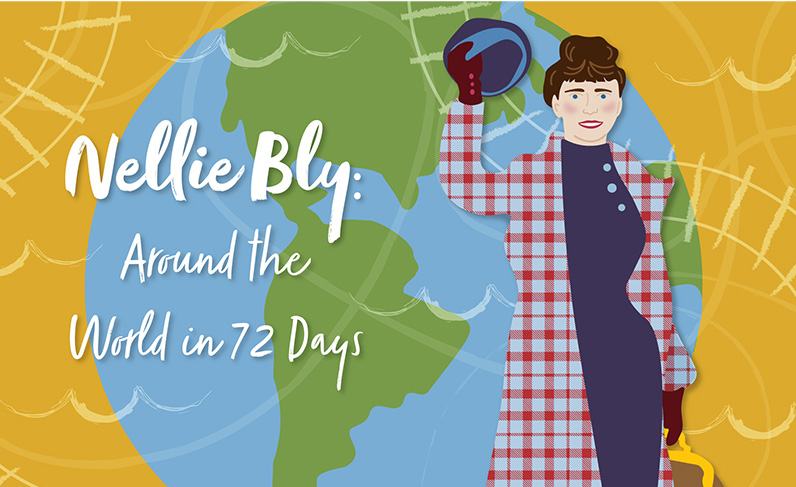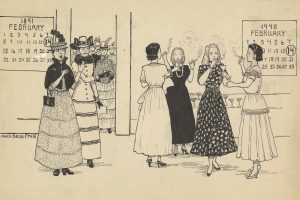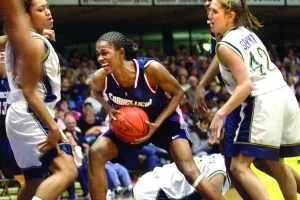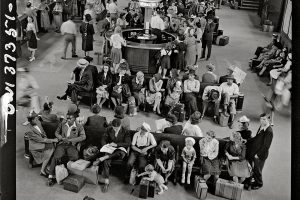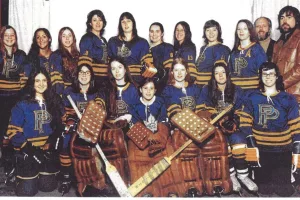Women Forging the Way
There is no shortage of history-making women connected to Western Pennsylvania. Journalist Nellie Bly traveled the world in a record-breaking 72 days. Musician Mary Lou Williams introduced new audiences to the world of jazz. Activist Daisy Lampkin battled for equal rights for women and Civil Rights for all. Filmmaker Lois Weber became America’s first woman film director. Abolitionist Jane Grey Swisshelm fought against slavery and advocated for women’s rights.
To commemorate the 100th anniversary of women gaining the right to vote in the U.S., the History Center launched Women Forging the Way – an initiative focused on elevating women’s history in 2020 and beyond. Women Forging the Way is supported by the Quentin and Evelyn T. Cunningham Fund and the W. Paul Spencer Fund of The Pittsburgh Foundation.
Highlights
Nellie Bly: Around the World in 72 Days
On Nov. 14, 1889, New York World reporter and Western Pa. native Nellie Bly started a 25,000-mile journey around the world, inspired by the popular Jules Verne book “Around the World in Eighty Days.”
Nearly 131 years later, we’re sharing her adventures in real time. Follow her thrilling journey around the globe here now through January 2021.
We’re Collecting!
The History Center is actively looking for objects, photographs, and archival material documenting women’s history in the region to add to the museum’s collection.
To learn more about donating an object, contact Emily Ruby at 412-454-6350.
To learn more about donating photographs or archival material, contact Carly Lough at 412-454-6367 or ctlough@heinzhistorycenter.org.
Further Research
Barbara Johnstone, Ph.D., a volunteer with the History Center, put together a research guide on women’s suffrage in Southwestern Pennsylvania.
The Women’s Suffrage Movement in Southwestern Pennsylvania
From the Introduction: This guide is for anyone researching the fight over women’s suffrage in Pittsburgh and elsewhere in the southwestern Pennsylvania area. It focuses on events and people connected with the pro-and anti-suffrage movements in the years leading up to the ratification of the 19th Amendment, focusing in particular on 1910 – 1920. It lists primary archival sources as well as key secondary sources. The guide is not intended to provide a complete history of the suffrage movement in this area, just to open up a few avenues for research. There is no doubt a great deal of important and interesting information about this topic that did not make it into this guide, simply because we didn’t ask the right people or the people we asked weren’t aware of what they had.
This research guide is available online.
